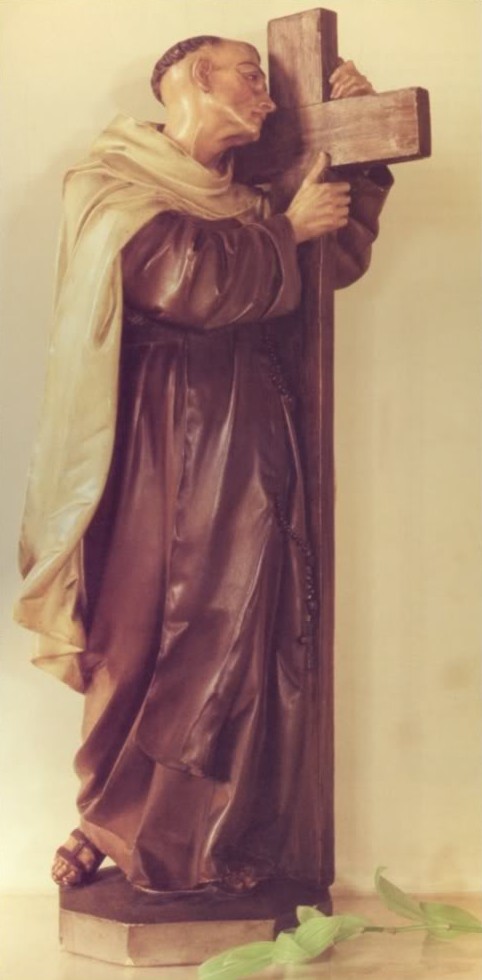As seen already, the piety of Inigo (St Ignatius of Loyola) from childhood was imbued with a deep and tender devotion to the Mother of God. Even in his wild days, he would turn to her at critical times, as when he was about to fight a duel. A vision of her during the first stage of his conversion at Loyola confirmed him in his good resolutions and filled him with loathing for his past sins against purity. Then he copied her words from the Gospels into his notebook, writing them as beautifully as he could, and all in distinctive blue. On his feet again, his first business was to visit her shrine at Aránzazu. To her he made his vow of chastity on the road to Montserrat, and for her honor he strove with the Moor. On the holy mountain, he kept his vigil before her altar, and surrendered to her there his sword, as token of his undying loyalty. At Manresa, he said her Office daily and prayed at every altar to her that he could find. In storms at sea, we may be very sure that no one sang Salve Regina with fuller heart than he did, and that on his journeyings by land in Spain and Italy her wayside shrines were the only milestones he reckoned with at all. Hercules, Hector, Achilles, Socrates, Plato, Horace, and the rest of them are given liberal mention in the Manual of Erasmus, but the name of Holy Mary occurs in 287 pages only once and that in an equivocal context. No wonder that the humble and loving heart of Inigo felt frozen. –Saint Ignatius of Loyola: The Pilgrim Years 1491-1538 by James Broderick S.J.







Recent Comments